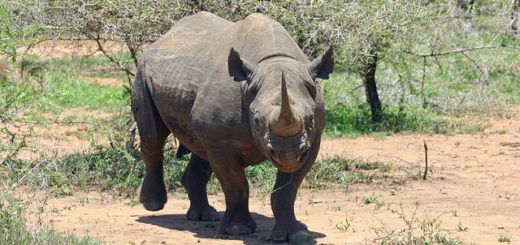Consultancy Services for Project Evaluation of Digital Skills in Business Development
The Norwegian Refugee Council (NRC) through the intervention aims to contribute to enhanced self-reliance and increased resilience for refugees and host communities in and around Dadaab refugee camp, Garissa County, Kenya. Across the 32-month project (May 2019 to January 2022), the immediate outcome will be increased capacity of the target population to generate sustainable income and strengthen resilience of economic activities through a focus on digital services (online freelancing) value chain. The project (RESI II) targets 1,270 youth and young adults with funding support from the Dutch Ministry of Foreign Affairs (budget of 2.5 million Euros). This project is a follow up from RESI I, building on lessons learnt and successes made in RESI I. This will be met through three main outputs:
- provision of market-driven skills with follow up coaching and mentoring support to enhance employability and self-employment for refugees;
- support to entrepreneurship and business development through training, coaching and incubation of new and existing Micro, Small and Medium Enterprises (MSMEs) and facilitation of market linkages; and
- support to create an enabling environment for entrepreneurship and business development for refugees and surrounding host communities of Dadaab.
The three outputs combined will respond to the main challenges in Dadaab to support sustainable livelihoods:
- the need to equip refugee and host community members with skills that match market demand, focusing on market-driven and commercially viable solutions;
- the need to work with market actors to create market driven (self-) employment and support sustainable business development opportunities and increase access to support and financial inclusion; and
- the need to address systemic barriers to refugee self-reliance as a result of the encampment policy and legislative framework in line with Kenya’s commitments as a pilot country of the Comprehensive Refugee Response Framework (CRRF) and in line with the Global Compact for Refugees as well as the on-going developments around the implementation of the Garissa County Integrated Development Plan (CIDP) 2018:2022.
Purpose of the Evaluation and Intended Use
Overarching purpose
The purposes of the evaluation are;
- To inform and influence NRC and ITC, about ongoing response on refugee employment and skills initiatives, improve operational decision making and provide learning.
- To gauge the relevance of planned outputs and outcomes, assess the theory of change and progress towards achievements of objectives.
- To independently assess the relevance, effectiveness, efficiency, impact and sustainability and connectedness of the project to the refugee economic development agenda/UN global compact on refugees to promote self-reliance for refugees and host communities.
Scope
The evaluation is expected to be completed within a maximum period of 45 days (June to August 2021) from the date of signing of the contract with the successful bidder. The geographic location for the evaluation will cover Dadaab refugee camp and surrounding host community areas, Garissa County, Kenya. The external evaluation will cover the Increased access to digital skills and business development support project (RESI 2) implemented by NRC and ITC and funded by the Dutch government in Dadaab.
Methodology
The methodology will be a mixed-methods approach including both qualitative and quantitative components. The data collection methodologies should use a participatory approach engaging all relevant stakeholders, including community leaders, government counterparts and NRC and ITC or staff. The consultant is expected to review the methodology while taking into account the government of Kenya and UNHCR COVID – 19 protocols.
Management of the Evaluation
The person responsible for ensuring that this evaluation takes place is the NRC M&E Manager located in Nairobi. The NRC Integrated Program Manager (IPM) in Dadaab will be the consultant’s main focal point and will provide administrative and logistical support, such as transport and permits.
An evaluation Steering Committee (SC) will be established by NRC, with the following members:
- Steering Committee chair: Head of Programs
- Evaluation manager: M&E Manager
- Steering committee members: ITC Program Manager, Area Manager/IPM, Regional LFS Adviser.
The Steering Committee will oversee administration and overall coordination, including monitoring progress. Weekly meeting will be held with the consultant to check on progress, quality of outputs, guide on the process and help sort out any challenges being experienced by the consultant. The main functions of the Steering committee will be:
- Establish the Terms of Reference of the evaluation;
- Select evaluator(s);
- Review and comment on the inception report and approve the proposed evaluation strategy;
- Review and comment on the draft evaluation report;
- Establish a dissemination and utilization strategy.
Evaluation Consultant Team
The lead consultant/Researcher must be Senior Expert in assessment or Evaluation of Large and complex program and holds a minimum of a Master’s degree in Social Science, Development studies, Economics, Rural Development or related subject and practical knowledge in Conducting Evaluation in Kenya. Qualifications must include:
- A minimum 10+ years in, designing and implementing evaluations in humanitarian projects with particular experience in refugee Livelihood and food security programs.
- Proven track records in leading study teams and producing quality reports.
- Extensive quantitative research and data analysis experience using statistical software’s (SPSS, Stata, and others).
- Expertise in facilitating qualitative data collection and analyzing qualitative data using rigorous techniques.
- Proven ability to work with community and government stakeholders
- Proven consultancy and/or work experience with NGOs as well as experience with other international and bilateral organizations on humanitarian program. Good knowledge of refugee response self-reliance interventions.
- Excellent writing and presentation skills.
- Excellent English writing skills required among someone on the evaluation team.
- English and language required, Somali, Swahili languages preferred.
How to apply
For complete TOR and tender document: https://procurement.nrcsystems.net/ from Monday 31st May to Friday, 11th June 2021.
Complete proposals should be submitted through https://procurement.nrcsystems.net/bid on Tuesday 15th June 2021 at 1700 hrs.








